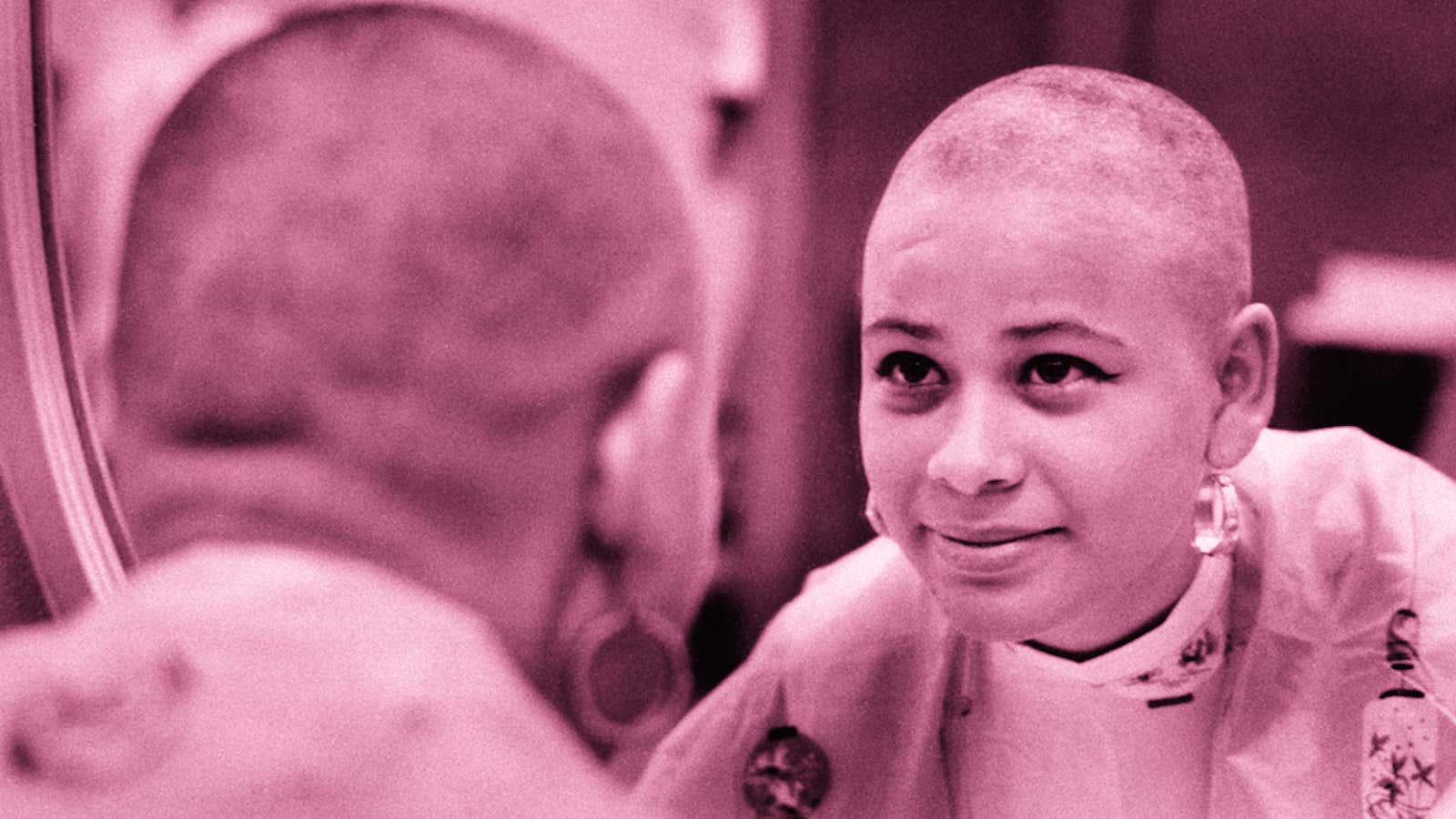One unexpected consequence of living through a global pandemic is that I’m spending a lot more time staring at my own face these days. Back-to-back BlueJeans meetings followed by FaceTime dates and Zoom happy hours mean that I now spend many hours a day gazing not just at my friends and colleagues, but at my own reflection in the video-chat window.
For me, and for many others, this aspect of video chatting is uncomfortable. One 2014 survey by the US furniture company Steelcase found that 72% of employees feel distracted by their own appearance during video chats, while 58% worry about looking tired or washed out. (Personally, I worry about my skin and whether my bangs are so shaggy they’re veering into Highland cattle territory, but to each their own.) Another 2016 study from the video-conferencing company Highfive found that 59% of employees feel more self-conscious onscreen than they do in real life.
There are a lot of adjustments that we can make to help ourselves look better on video calls—from elevating our laptops to a more flattering angle to adjusting the position of a nearby lamp. (Light that hits us at a 45-degree angle tends to work best.) But for those of us who struggle with deeper self-image issues, the most helpful solution of all may be to log some quality quarantine time looking at ourselves in the mirror.
“We’re all wired to find problems and faults and flaws and foibles,” says Tara Well, an associate professor of psychology at Barnard College whose research focuses on mirrors and reflections. “When we look at ourselves for more than a few minutes, we see things that are wrong with us.”
Part of the problem, of course, is that mainstream beauty standards (not to mention Instagram filters and FaceTune editing) make us believe that we must meet a narrow set of requirements to be deemed attractive. But Well says that another reason we’re hyper-critical of our onscreen appearances is that we’re simply unaccustomed to looking at ourselves.
Evolutionarily speaking, “in order to survive, we had to keep our attention outward toward the group,” Well says. “So when we look at ourselves, it’s kind of unnatural.” And in our daily lives, we mostly look in the mirror while we’re grooming and getting ready to go out into the world—which means that our relationship with our own reflection is one where we’re always judging and evaluating ourselves, scanning for under-eye circles that can be corrected with concealer or teeth that might be brightened with whitening strips.
The art of mirror meditation
For people who are self-conscious about their appearance, Well recommends mirror meditation—a practice that can help us learn to be kinder to ourselves and our digital images.
To get started, she says, sit in front of a mirror for 10 minutes a day, using the three principles of mindfulness meditation. “Bring your attention to the present moment with yourself. Then have an open awareness, where you’re open to seeing yourself in a new way, you’re open to not knowing what you’re going to necessarily see,” she says.
The last part is the hardest for many of us: “Have a kind intention toward yourself.” That doesn’t mean engaging in a bunch of “woo-woo” affirmations, she says—simply channel a generous, nonjudgmental feeling toward your own image.
Mirror meditation helps people realize how cruel they are to themselves and to get more in touch with their emotions, according to Well. If we’re stressed or sad, we’ll be able to spot those feelings in our face, rather than zeroing in on a zit or grey hairs. “It’s about taking the mirror from how we habitually use it, for vanity or criticism, and using it as a reflective service for how we’re feeling,” she says.
The practice may be particularly useful in the coronavirus era—both because video chatting is inescapable, and because many people don’t have access to their usual support systems and coping mechanisms even as they’re experiencing heightened levels of anxiety, grief, and loneliness.
If you find yourself feeling angry or sad, and either don’t want to stress out the people you live with or don’t have others around, Well suggests spending some time with yourself in the mirror processing those emotions.
“You can set a timer for 10 minutes and say, I’m going to let myself feel horrible, and then go back to all the stuff I have to do,” she says. “It’s not a substitute for psychotherapy, of course. But in these moments when you don’t have somebody to lend a compassionate ear, it can be very valuable to develop that relationship with yourself.”
